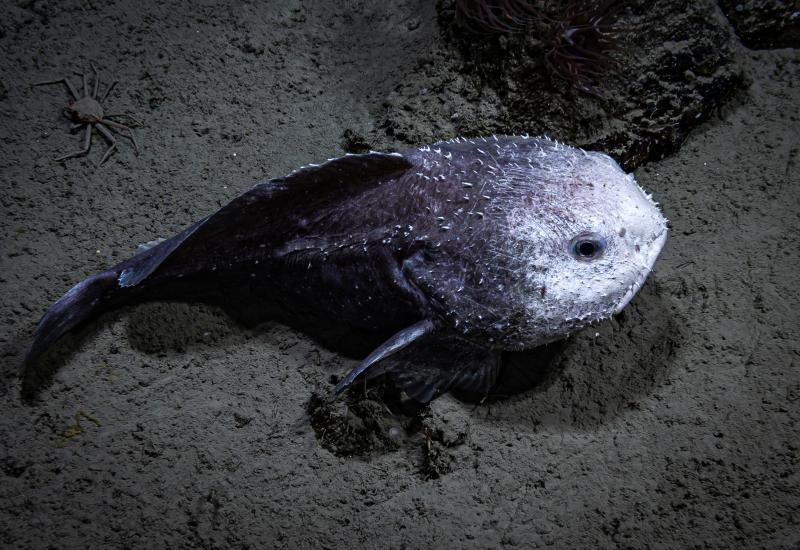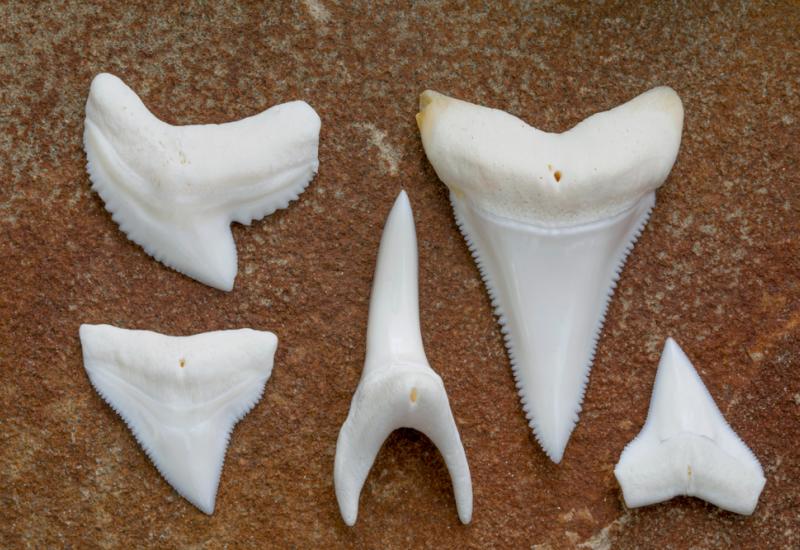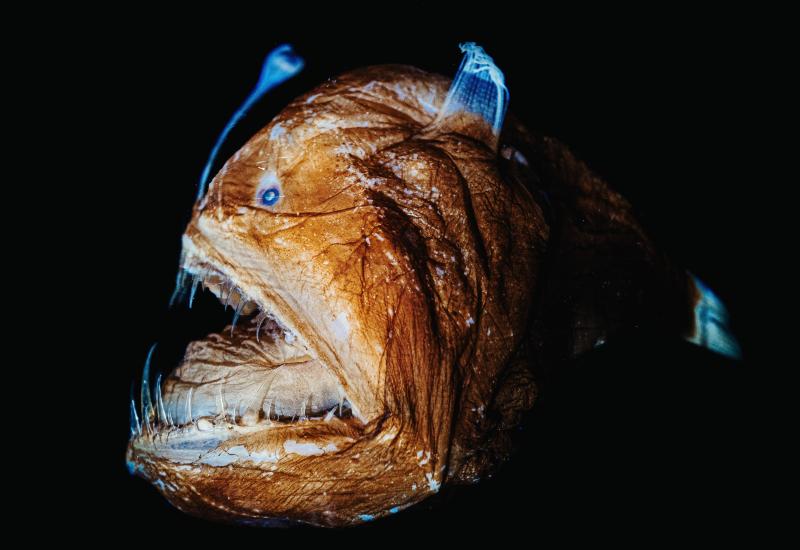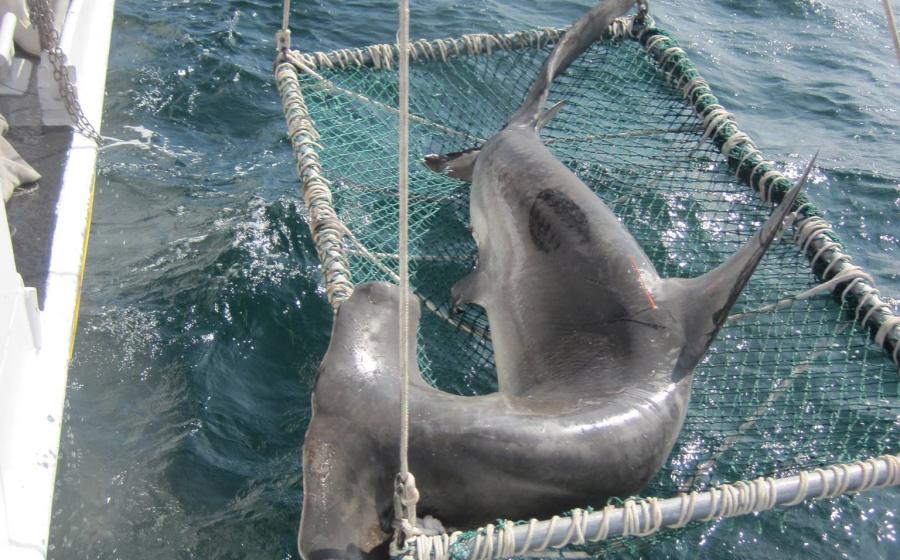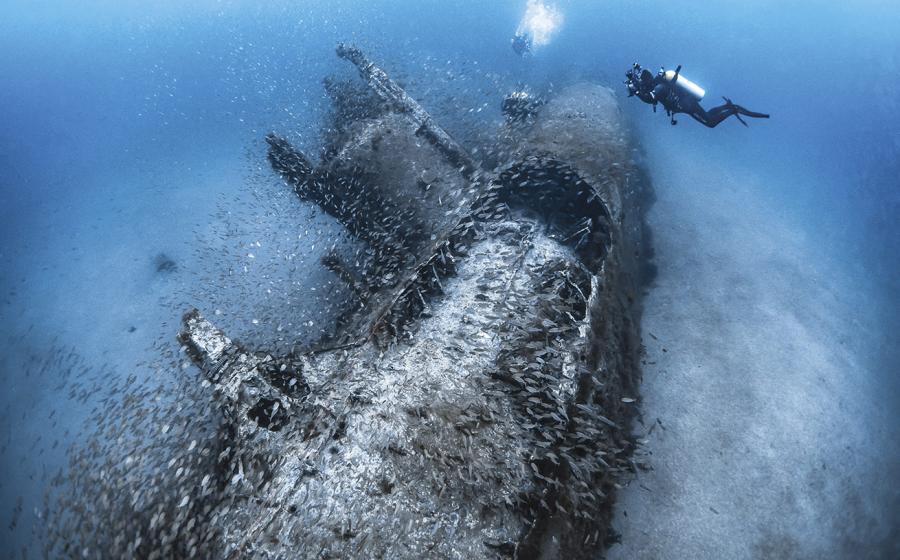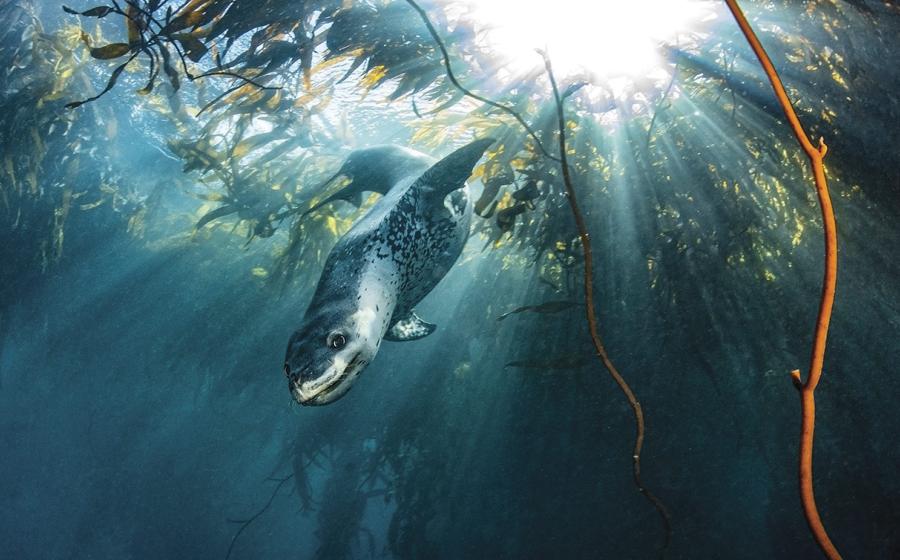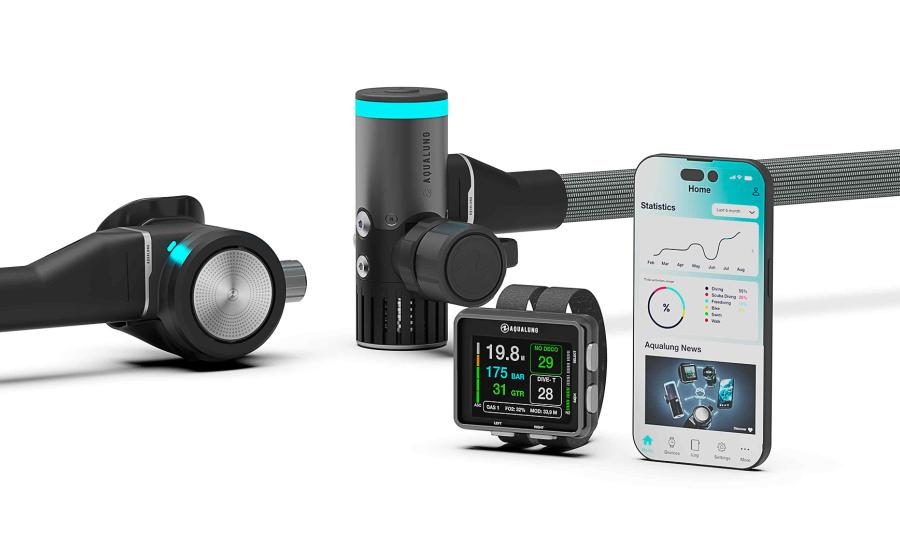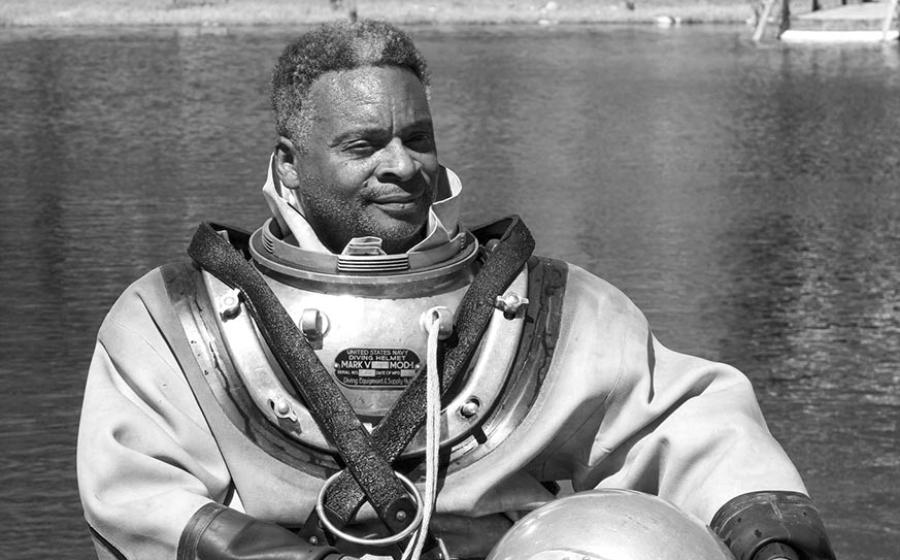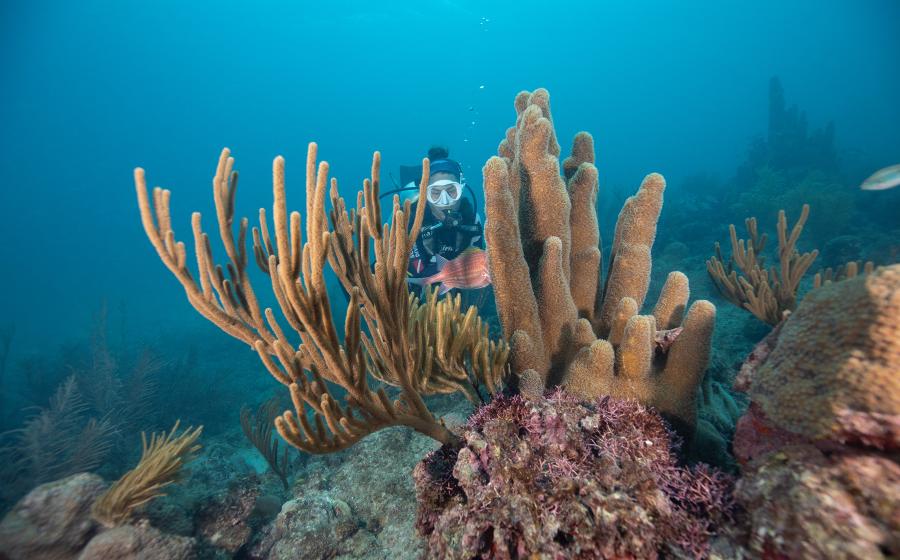How Can You Become a Marine Biologist Too?
Question: “How can I become a marine biologist? What education is required? What types of jobs are available?” —This is an amalgamation of lots of different questions I’ve received over the past year.
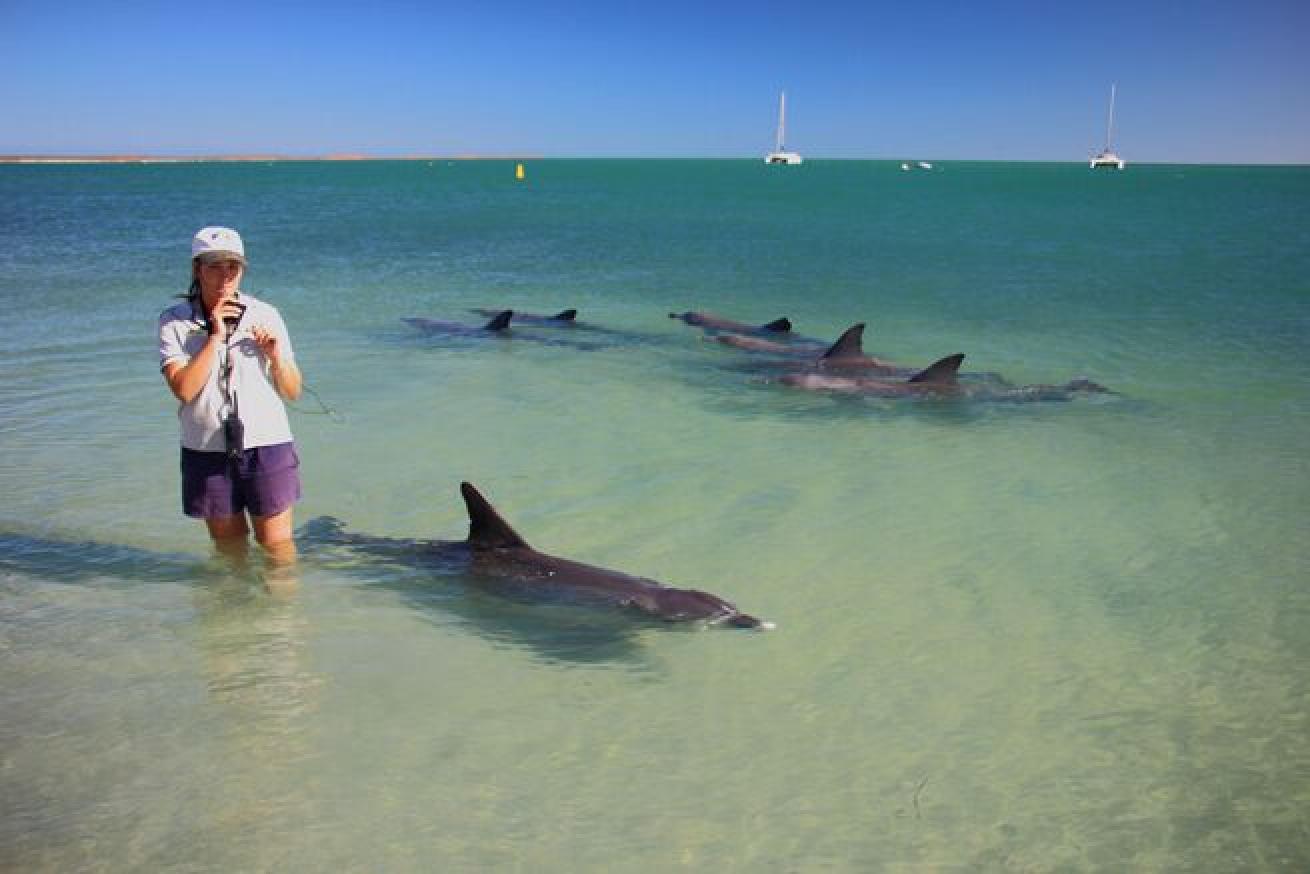
Shutterstock.com/RizdMarine biologist interacts with the wild dolphins coming near the shore of Monkey Mia in Australia.
Answer: I get asked for career advice a lot, and I’m hesitant to give it for a simple reason: I don’t know you very well. I don’t know your strengths or your weaknesses; I don’t know your personal and professional goals; I don’t know what you’d enjoy or what you’d excel at; I don’t know what’s flexible and what’s a deal breaker when evaluating possible jobs. In general, I strongly advise that you don’t make life-altering decisions based on advice from people who don’t know these things about you. However, I am happy to give some general advice that I hope will at least point you in the right direction! (I should note that I am speaking of the U.S. education and employment system here, and things are different in some other places, but these tips are broadly applicable.)
First of all, let’s define our terms and make sure we’re talking about the same thing. A marine biologist is a scientist who studies the organisms that live in the ocean, how they adapt to their environment, how they interact with each other, and (sometimes) how they interact with humans. Lots of people say they want to be a marine biologist so they can save the ocean, but that’s not really what a marine biologist does. You may be considering a career as an environmental advocate, which is a worthy and fulfilling profession—it’s just not one I can offer you any advice about because it’s not what I do. Many marine biologists do conservation-relevant research that can inform policy (I do this), but that’s not the same thing as advocating for policy change directly.
Related Reading: Why Do Sea Turtles Return to the Same Beach?
Most marine biologists are employed by colleges or universities, or by government natural resource management agencies, though a growing number are employed by environmental nonprofits. A scientist who works for a nonprofit is not the same thing as an environmental advocate, by the way; they have very different roles and responsibilities. Scientists who work for environmental nonprofits typically work as technical advisors for advocate groups, and some are also able to perform independent research. The main difference between marine biologists who work for each type of employer is how much freedom they have to choose their research topic: Academics have the most freedom here, while government scientists work on federal research priorities, and environmental nonprofit scientists work on a conservation issue that their employer considers a priority. Employers will also dictate what a marine biologist’s nonresearch responsibilities will be—such as teaching, if they work at a university, for example.
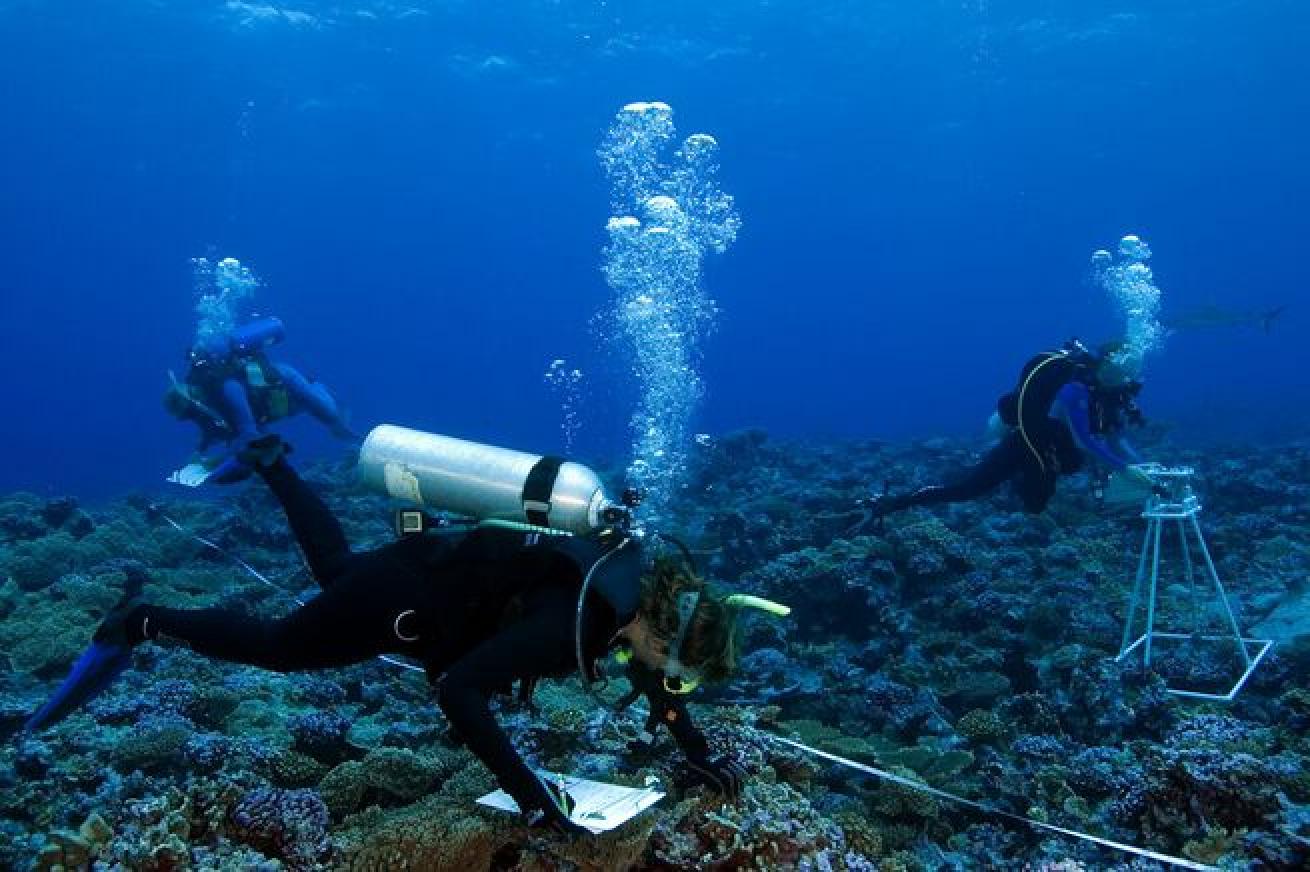
Shutterstock.com/zaferkizilkayaScuba divers participate in survey dive on Kingman Reef.
You don’t need to major specifically in marine biology in college to become a marine biologist. Most of us don’t. I majored in biology, though many of my electives were marine biology. Some of my colleagues even majored in chemistry or biochemistry. You will definitely need a strong and deep background in general science, though. Additionally, getting some real research experience as an undergraduate (i.e., working in a lab, working as a field assistant, a project where you learn tangible scientific skills that can be translated to another project elsewhere) will help more to get you into graduate school than unpaid or pay-to-participate internships will.
And yes, if you want to be a practicing, research-performing marine biologist, you’re almost certainly going to need some graduate school. Almost any research job in marine biology requires at least a master’s degree, and many require a Ph.D. If you want to have any control over what type of research you do (rather than being a technician working on someone else’s project), you’re almost certainly going to need a Ph.D. Graduate school is very different from college; you still take some classes, but for the most part, you’re spending your time running your own research project under the direction of a supervisor, sometimes called an advisor or principal investigator (PI).
Related Reading: What Are the Best Schools to Study Marine Biology?
Speaking of which, graduate school is also different from college in that you don’t really apply to a school, you apply to a lab, by applying to work with an individual PI. The best way to do this is to figure out the type of work you want to do. For example, don’t just say, “I want to work with sharks.” Focus your interest to something like, “I’m interested in the movement ecology of small coastal sharks along urbanized coastlines,” or “I’m interested in the impacts of the Gulf of Mexico oil spill on the reproductive physiology of deep-sea sharks.” Do a literature review and a quick Google search to find out who’s working on that stuff, and shoot them an email. (I should note that some “famous” scientists have told me they’ve received 100-plus emails a year to apply to join a lab when they might have zero or one spot for new students, so you should cast a wide net here.)
A master’s typically takes two to three years, and a Ph.D. typically takes five to eight years, so this is a lot of school! It’s hard work, often with long hours, and it involves moving a lot because it’s unusual to get your undergraduate degree, master’s and Ph.D. from the same institution, though that does happen. During your graduate education you’ll learn not just memorizable facts about science, but how to do science. And when you’re done, you’ll be trained for a career as a researcher. Then you can start looking for jobs from the employers I described above, and start a career studying the ocean and its creatures—that process is complex enough to almost warrant another whole article, but I’ll attempt to briefly explain.
Many research job applications require a cover letter summarizing your qualifications and fit for the position, letters of reference from teachers or research supervisors, and a CV (like a résumé but longer, it should contain everything relevant and isn’t limited by page length). Some also require brief essays outlining your experiences and goals for the position. Some are advertised on academic group email lists or online job boards; some are advertised on government websites; some by professional societies for scientists; many you only hear about through a friend or colleague. You should cast a wide net here too—a recent biology faculty job I considered applying for had more than 1,000 applicants for one job. Some of these jobs are seasonal or hourly or part-time, and designed for folks early in their career; others are permanent positions. I’ll let you know how to get a permanent job in marine biology once I get one myself—I’ve been bouncing around a series of short-term positions.
It's a lot of work and it takes a long time, but I love my career and I wouldn’t trade it for anything.
Ask a Marine Biologist is a biweekly column where Dr. David Shiffman answers your questions about the underwater world. Topics are chosen from reader-submitted queries as well as data from common internet searches. If you have a question you’d like answered in a future Ask a Marine Biologist column, or if you have a question about the answer given in this column, email Shiffman at [email protected] with subject line “Ask a marine biologist.”

Courtesy David ShiffmanDavid Shiffman
Dr. David Shiffman is a marine conservation biologist specializing in the ecology and conservation of sharks. An award-winning public science educator, David has spoken to thousands of people around the world about marine biology and conservation and has bylines with the Washington Post, Scientific American, New Scientist, Gizmodo and more. Follow him on Twitter, Facebook and Instagram, where he’s always happy to answer any questions about sharks. The views expressed in this article are those of David Shiffman, and not necessarily the views of Sport Diver or Scuba Diving magazines.

